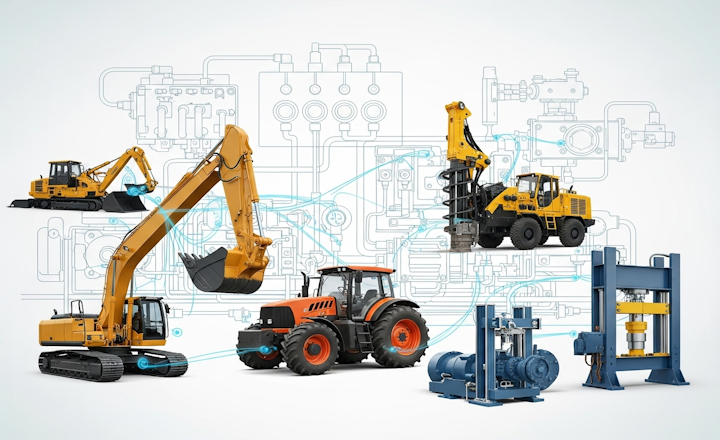
Hydraulic systems are at the core of many industries, powering everything from construction machinery to manufacturing plants. Known for their reliability and ability to generate immense force, hydraulic equipment plays a vital role in modern engineering and heavy-duty operations. Whether you’re a business sourcing machinery or simply curious about how these systems operate, understanding their fundamentals can help you appreciate the importance of choosing the right hydraulic equipment supplier in Australia.
What is Hydraulic Equipment?
Hydraulic equipment refers to machines and tools that use pressurised fluid to perform work. At the heart of every hydraulic system is the principle of transmitting power through fluid, usually oil. By channelling this fluid under pressure, hydraulic systems are able to create movement, lift heavy loads, and perform precise operations.
You’ll find hydraulic equipment in a wide range of industries, including:
• Construction – excavators, bulldozers, and cranes.
• Mining – drills, loaders, and haul trucks.
• Agriculture – tractors, harvesters, and balers.
• Manufacturing – presses, moulding machines, and assembly lines.
How Does Hydraulic Equipment Work?
Hydraulic systems work on a simple yet highly effective principle known as Pascal’s Law. This law states that pressure applied to a confined fluid is transmitted equally in all directions. By using this concept, hydraulic systems can multiply force and achieve tasks that would otherwise require massive amounts of mechanical effort.
A basic hydraulic system typically includes the following components:
• Hydraulic Pump – draws fluid from a reservoir and pressurises it.
• Valves – control the flow and direction of the fluid.
• Actuators (Cylinders or Motors) – convert fluid power into mechanical movement.
• Hydraulic Fluid – transmits energy and also lubricates and cools the system.
When the operator activates the equipment, the pump forces hydraulic fluid through valves to the actuators, which then move or lift as required. Once the task is complete, the fluid cycles back into the reservoir to repeat the process.
Advantages of Hydraulic Equipment
Hydraulic systems are widely used because they provide several key benefits:
• High Power Density – hydraulics deliver significant force from relatively small components.
• Precision and Control – operators can control speed, direction, and force with accuracy.
• Durability – hydraulic systems are designed to withstand tough working conditions.
• Versatility – from lifting loads to operating delicate machinery, hydraulics are adaptable.
Why the Right Supplier Matters
Hydraulic systems are complex, and their performance depends on the quality of both components and servicing. Choosing an experienced supplier ensures you receive equipment tailored to your industry, backed by ongoing support and reliable maintenance. A trusted partner helps extend the life of your machinery, minimises downtime, and keeps your operations running smoothly.
Final Thoughts
Hydraulic equipment is the backbone of many industries, providing the muscle behind countless machines we rely on every day. By harnessing the power of pressurised fluid, these systems deliver efficiency, strength, and precision that mechanical alternatives often cannot match.
| < Prev | Next > |
|---|




